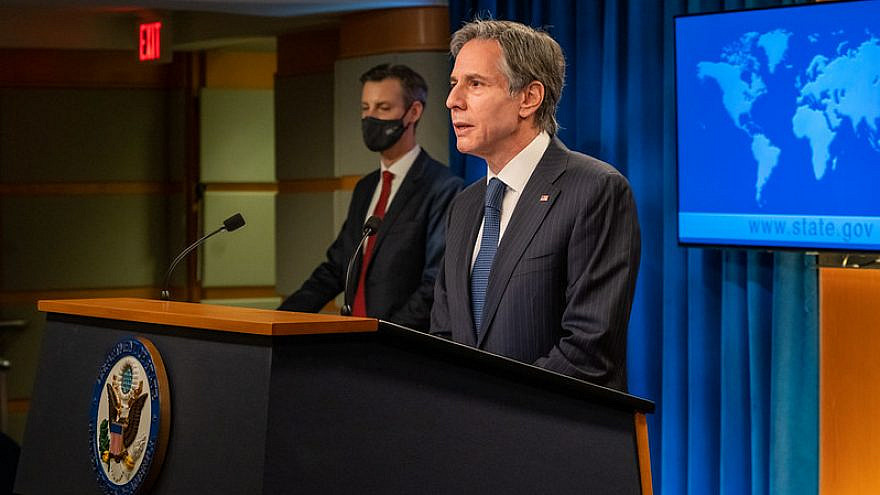The Biden administration returned to using the term “occupied” when referring to the West Bank, Gaza Strip, Golan Heights and eastern Jerusalem in its annual human-rights report issued by the U.S. State Department.
Under the Trump administration, the State Department dropped the term “occupied” when referring to these territories and removed the Golan Heights from the 2018 and 2019 reports after the United States recognized Israeli sovereignty there.
That section of the report covers Israel “within the 1949 Armistice Agreement line, as well as Golan Heights and East Jerusalem territories that Israel occupied during the June 1967 war and where it later extended its domestic law, jurisdiction and administration.”
The language, however, “is not meant to convey a position on any final-status issues to be negotiated between the parties to the conflict, including the specific boundaries of Israeli sovereignty in Jerusalem, or the borders between Israel and any future Palestinian state.”
Speaking on the decision to keep the title, acting State Department official on human rights Lisa Peterson said its authors continued to believe that it was better to assign specific geographic names.
“That’s in line with our practices generally. We also believe it is clearer and more useful for readers seeking information on human rights in those specific areas,” she told reporters.
Former U.S. Secretary of State Mike Pompeo also said America would no longer consider Israeli settlements in the West Bank as illegal, breaking with prior policy and with many in the international community.
Israel gained control of the West Bank, Gaza Strip, Golan Heights and eastern Jerusalem in the 1967 Six-Day War.


























